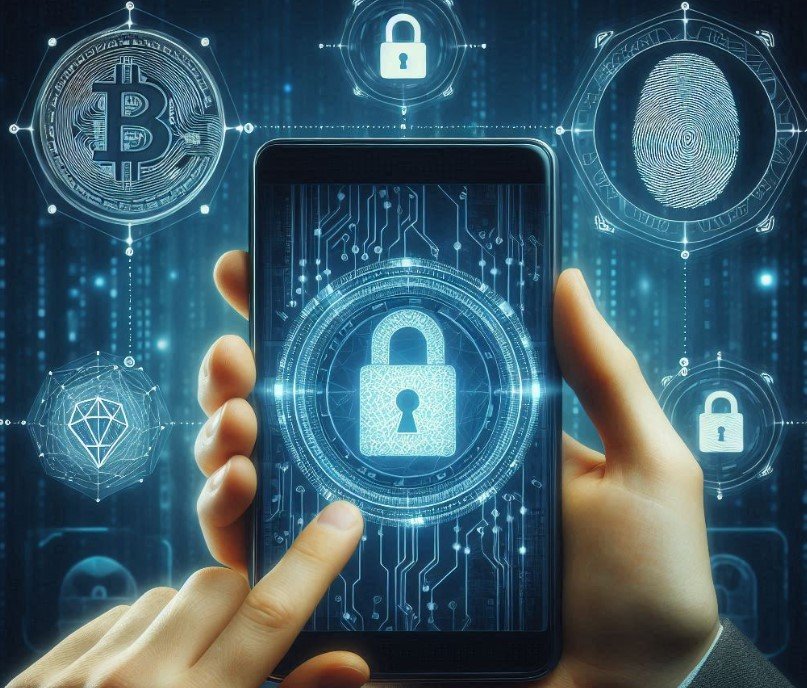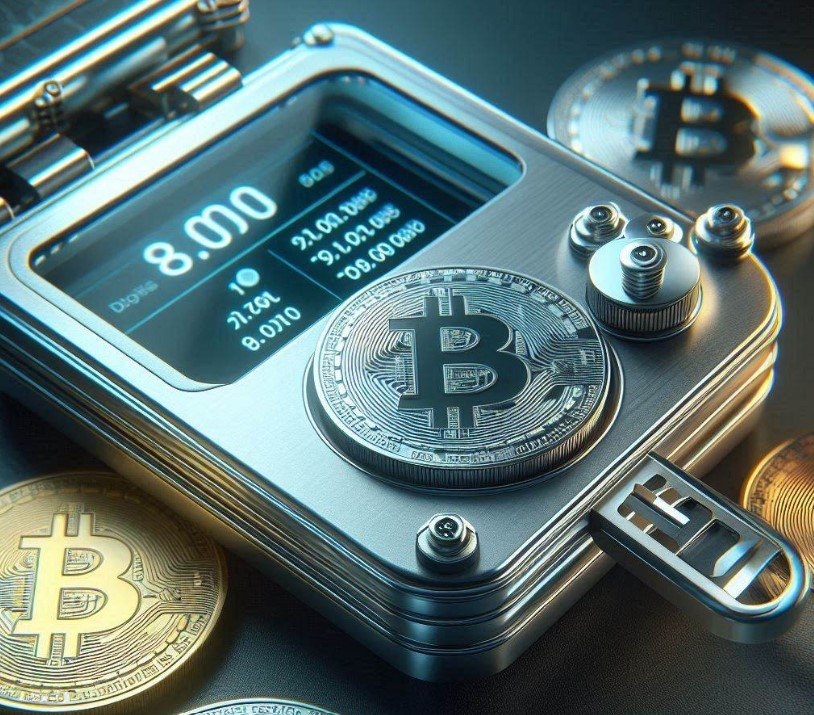Cryptocurrency wallets drastically changed how we store, manage, and spend cryptocurrency. Being the entryway to digital assets allows them to shape and define your investments, providing a secure storage means for investors like yourself. But then comes the follow-up question; How Can I Trust A Cryptocurrency Wallet?” This post will answer that question in depth, with practical advice and pointers to keeping your crypto safe.
How to secure the wallet you have chosen, who made it, and what kind of background does that entity have in securing funds for their users (how reliable they are), as well as your duties regarding holding onto your private key? Even though trust in a cryptocurrency wallet means ascertaining its authenticity and reputation throughout the crypto community, doing it sensibly can significantly eliminate risk.
How Can I Trust A Cryptocurrency Wallet?
To trust a Cryptocurrency Wallet, you need to look at the cryptocurrency wallet’s reputation, security features, and customer opinion. According to me, you can trust Ledger Nano S or Trezor and Kraken wallet.

What Is A CryptoCurrency Wallet?
A CryptoCurrency Wallet is a sort of app or software that stores your private keys and you can send or receive digital money in your CryptoCurrency Wallet. Traditional wallets store physical currency, cryptocurrency wallets are as secure because they keep your private keys—the information you set aside to authorize transactions on Blockchain. So, What makes that Possible? A series of two cryptographic keys, one private key, and a public key, combine to enable the owner to access their money.
- Public Key (Address): This consists of an encrypted hash that acts as your publicly known address. When someone wants to send Bitcoin, it broadcasts this “public” information connected only. For example, their home wallet ensures it enters the Bitcoin ledger.
- Your Digital Asset Management: The cryptocurrency wallet does not save money but saves the keys to your digital assets. One of the most critical applications is to keep your investments safe, sort them, and manage them efficiently.
Types Of Cryptocurrency Wallets
With that in mind, below are several different types of cryptocurrency wallets and what they offer regarding security vs. convenience:
Hot Wallets
Exodus and Electrum are examples of brain wallets.
Web Wallets
While convenient and accessible via a web browser, you must trust the provider. Such as MyEtherWallet, or MetaMask.
Cold Wallets
You are making them resistant to online attacks. It generates and prints your private key (and Bitcoin address) on one side with an offline computer. Then, you can scan the public QR code to send your bitcoins.
Custodial and Non-Custodial Wallets
- Custodial Wallets: These wallets are controlled by a third-party service, and only private keys are held. Although handy, they also rely on you trusting the provider—a wallet like Coinbase Wallet.
- Non-Custodial Wallets: These wallets mean you hold your keys so in case of need, complete control over the digital assets is restorable by default (e.g. Trust wallet).
How Does A Cryptocurrency Wallet Work?
A cryptocurrency wallet is how you directly interact with a blockchain to manage your transactions. Here’s a simplified process; as we said in a previous post, creating a wallet generates two keys: the public and private key pair. The public key is used to accept payments, while the private key must be much more closely guarded.

Transaction Authorization
You sign the transaction with your private key before sending any cryptocurrency. Your jurisdiction’s equivalent ensures you own this and sign off on…” an appropriate way to do the transfer”.
Broadcasting to the Blockchain
After signing, your transaction broadcasts onto the blockchain network, where miners validate and confirm it.
Use the Encryption Mechanisms for Data Security
These are the private and public keys that cryptocurrency wallets protect using advanced encryption algorithms. This encryption increases the security of your virtual coins and is a potential barrier to anyone attempting to access them, as cybercriminals are trying to take away your savings illegally.
Blockchain Integration: Confirmation of Transactions
Blockchain networks are directly accessible with cryptocurrency wallets. This link verifies and registers deals to ensure that each contract has happened on hardcopy. This type of system helps to maintain transparency in the market and trust.
How To Check If A Crypto Wallet Is Legit?
The authority establishes whether a digital wallet exists. There are two basic steps for checking whether a wallet is original or duplicate.

- Reputation & Reviews: Read community and forum reviews end ratings. A reputable wallet will also have good reviews and an extensive user base.
- Open Source Code: Most legitimate wallets have open-source code, meaning developers can audit and verify their security.
- Official Website and Downloads: When downloading wallets, refer to their official website only, as fake versions can be found that will hack your funds.
- Wallet Security: Get wallets with good security features such as two-factor authentication (2FA) and backup service.
Is Trust Wallet Safe?
Trust Wallet is a top non-custodial wallet that controls users’ private keys. The following are reasons why it is safe:
- Control over a private key—Trust Wallet users are in charge of their funds by storing their private keys on their devices, which makes centralized hacks impossible.
- Advanced encryption measures are imposed on the wallet to keep your data and assets safe.
- Binance Connection: Binance recent acquisition, combined with its status as one of the biggest exchanges in crypto, adds to its credibility and security.
- Security Audits: Security Checks: Regular security audits by third parties help ensure that Trust Wallet’s security features are always up to date. To boost security, these audits are necessary to detect the weaknesses in a system and for potential solutions before significant losses occur.
- Community Trust – Users Love It: This has contributed to the fact that Trust Wallet has many users who believe in its security and reliability. The user feedback and members’ backing up any claims that this bot will keep your trading funds safe further prove this.
How Secure Is Trust Wallet?
Trust Wallet is secured because of its non-custodial nature. To protect your assets, Trust Wallet has various security features implemented:

- Biometric Authentication: This option allows users to enable fingerprint or face recognition to strengthen security further.
- Wallet Backup & Recovery: The wallet also issues a 12-world recovery passphrase in case your device is stolen or lost.
- Frequent Updates: The Trust Wallet shows its dedication to user security by regularly updating the app with security patches and upgrades for betterment.
- Community Audits: Trust Wallet is an open-source project, so the community has complete visibility into the codebase, making it hard for malignant parties to compromise.
- Enhanced User Protection through Layered Security: Trust Wallet has several security measures, including encryption at different levels, 2FA and biometric access. These features combine to provide users with a defense against unauthorized access.
- Your Assets Your Control: Since using the Trust Wallet gives you full custody of your private keys, it ensures no one but yourself can access your funds. Of course, this works as an added layer of security by dispersing information through a new decentralized method — with privacy that keeps the data from any third party.
Is It Safe To Keep My Money in My Crypto Wallet Instead Of A Bank?
In general, crypto wallets are considered secure. You can keep money in a crypto wallet instead of a bank account. So, how do cryptocurrency wallets differ from banks if they are going to provide the same type of security but with a different monetary system?
- Centralization: With wallets, a single entity (your bank) controls the money, whereas with a crypto wallet, you hold complete ownership over funds.
- Chances of Hacks: As secure as they are, crypto wallets can be hacked. While less convenient than hot wallets, cold wallets are also safer.
- Volatility: The price of cryptocurrencies is more volatile than traditional fiat money and may result in significant loss based on the value dictator.
Is It Better To Keep All My Crypto In My Trust Wallet Than My Binance App?
It is better to keep your crypto in a hardware wallet like Trezor or Ledger. You can also use a hot wallet like Trust Wallet. You should avoid storing your crypto in exchanges.
How Do I Make Sure My Crypto Wallet Is Safe?
Secure your wallet with strong, unique passwords and 2FA (two-factor authentication) to further protect it. These add to the security of your wallet by making it harder for impostors to steal access. Let’s have a look at further ways for how to secure your crypto wallet:

- Strong Password: Never use a password for your wallet that is simple to guess, and make it different from any other of your passwords.
- Turn on Two-Factor Authentication (2FA): Setting up 2FA makes your account more secure.
- Update Software Regularly: More often than not, updates also include security patches.
- Backup Wallet: Keep your recovery phrase in a secure and offline place.
- Beware of Phishing: do not share your private key or recovery phrase with anyone.
- Automated Updates: Make Sure your Wallet is the latest version. Updates frequently have a security patch with fixes for known exploits, making your wallet more secure and much less prone to hacks.
Are Crypto Wallets Trustworthy?
Yes, crypto Wallets can be trusted with their precautions and all meanings in the right places. But that security largely depends on the user:
- Reputation: Stick with wallets that have a reputation.
- Open Source: Choose trust wallets that are open-sourced and audited by the community.
- Private Key Management: Allowing you to own your money and not having the exchange of control is intuitive but requires proper management of private keys.
- Reliability Assessment: A crypto wallet’s reputation and history determine whether it can be trusted. Older wallets that have been around for many years and have a clean security record are generally more considerate.
- User Trust: As user experiences demonstrate, the most reliable wallets have a strong community. Responsive communities are vital and can inform you about security concerns regarding the software, helping you make decisions.
Which Cryptocurrency Wallet Is The Most Trusted One?
Some of the trustworthy cryptocurrency wallets are:
- Hardware wallet: The Ledger hardware wallets are super secure and specifically designed for the highest level of security.
- Trezor: A well-known hardware wallet with a secure feature set and easy-to-use interface.
- Trust Wallet: A Mobile wallet with a security emphasis and custody of private keys.
- Exodus: One of the most user-friendly software wallets built in also with an exchange.
How Can We Trust Cold Wallets?
You can trust cold wallets because cold wallets do not need access to the Internet, they are considered more reliable. You can trust Trezor Wallet because Trezor is an open-source wallet.

Cold wallets keep personal keys offline, making them inaccessible to online hacking efforts. The Trezor and Ledger are examples of hardware wallets that allow users to add a secondary passphrase and PIN security.
If you have cold wallets, be sure to keep them in a secure place (e.g., a safe). As I mentioned in this post, this offline storage is a significant reason cold wallets are treated with excellent security and confidence.
Physical Guarding of Assets (Hardware Security)
Most cold wallets are hardware-based, and their features include physical security used to protect cryptos, such as PIN protection and secure chip technology. They make it hard for users who need to be authorized to access your funds.
Is It Safe To Keep Your Crypto In Coinbase Exchange Or Wallet?
Yes, you can keep money or crypto in a Coinbase exchange or wallet if you are taking the right security measures. Coinbase ensures assets are held in online storage. This insurance can also be a backup if you fall prey to a security breach and may help shoulder the loss of investment funds.

How To Know A Fake Trust Wallet? Or How to Spot a Trust Wallet Scam?
- Verify the Origin: Never download Trust Wallet from trustwallet.com or official app stores.
- Confirm Reviews: Go through many reviews and feedback from the crypto community.
- Take a Look at the Logo & Design: Many times, fake wallets differ by merely missing minor details such as the logo or design.
- Little things first: Test the wallet with a small text before transferring large amounts.
- Checking Official Sources: Whenever you download Trust Wallet, do so from the official source (App Store, Google Play). Watch out for scam clones or spoofed websites imitating the genuine wallet to acquire your login details.
- Indicators of Suspicious Activity: Some signs that make them fake wallets are if you begin to see illegal transactions or have difficulty accessing the funds on your wallet.
Conclusion
You should have a basic understanding of cryptocurrency wallets and, more importantly, how to assess the legitimacy or otherwise of providers and their security. Awareness is critical to protecting your digital assets; whether you opt for the convenience of a hot wallet or cold storage makes no difference.
Top FAQ’s
Which Cryptocurrency Wallet is the Most Secure?
Ledger Nano S and Trezor are the most secure hardware wallets since they support offline storage.
Are crypto wallets hackable?
The hack of crypto wallets is a little more complicated matter that can be prevented using security measures, like 2FA and sufficiently strong passwords.
What To Do If My Crypto Wallet Is Lost?
If you lose your wallet or get it stolen, funnily enough, as long as you back it up well, the exact recovery phrase will allow you to recreate everything from scratch.
Do I have to go with a custodial or non-custodial wallet?
They offer control and security but could be more convenient to use. Using a custodial wallet is more risky, as you must rely on the provider.
Is my crypto safe on an exchange?
Of course, exchanges have security features, but leaving millions of dollars on a centralized exchange is unsafe because hackers can always access them. Cold storage is the recommended tactic for long-term holdings.
